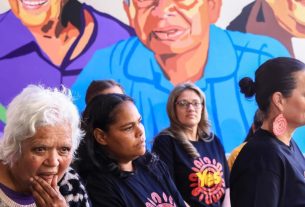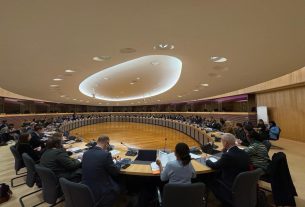In a landmark unanimous ruling published last week, the Inter-American Court of Human Rights found Peru responsible for violating Crissthian Olivera Fuentes’ rights to equality before the law and to judicial protection, after he faced discrimination in a commercial establishment and from Peruvian authorities.
In August 2004, Olivera and his partner, both gay men, visited a supermarket in Lima, during which time they kissed and acted affectionately toward each other. After a customer complained that their public display of affection disturbed him and allegedly affected nearby children, supermarket staff and security asked Olivera and his partner to desist or exit the premises. Olivera called the interaction “humiliating.”
Olivera filed a complaint to the consumer protection authorities and, after exhausting that avenue, appealed within the Peruvian judicial system. These authorities dismissed the case, citing insufficient proof of discrimination. The case reached the Supreme Court, which in 2010 reaffirmed the lower court’s ruling, citing the supermarket’s “presumption of innocence.” In 2011, Olivera, represented by DEMUS, a Peruvian human rights organization, appealed to the Inter-American system.
The Inter-American Court found that judicial authorities imposed an undue burden of proof on Olivera, resulting in a denial of his right to access justice. The court also held that the consumer protection authorities discriminated against him by giving weight to the baseless claim that same-sex displays of affection can be detrimental to children, and holding same-sex couples to different standards of behavior than that expected of opposite-sex couples.
This case builds upon other Inter-American rulings upholding the right of lesbian, gay, bisexual, and transgender (LGBT) people to live free from discrimination, stereotypes, and violence. The court emphasized the importance of considering the homophobic context in which an incident occurs. Citing the UN Guiding Principles on Business and Human Rights, the court also reinforced private companies’ responsibility to respect human rights principles in their operations, including the principle of nondiscrimination.
The court ordered Peru to prepare a comprehensive guide on the rights of LGBT people in the provision of services, and incorporate it into training courses for administrative and judicial authorities. It also ordered Peru to implement a public policy to help monitor whether companies are complying with principles of equality and nondiscrimination.
Same-sex couples deserve to express their love freely, just like heterosexual couples. This ruling, which helps to ensure there are mechanisms to report and repair unequal treatment by public and private actors, is a significant step toward ensuring such equality in the region.


